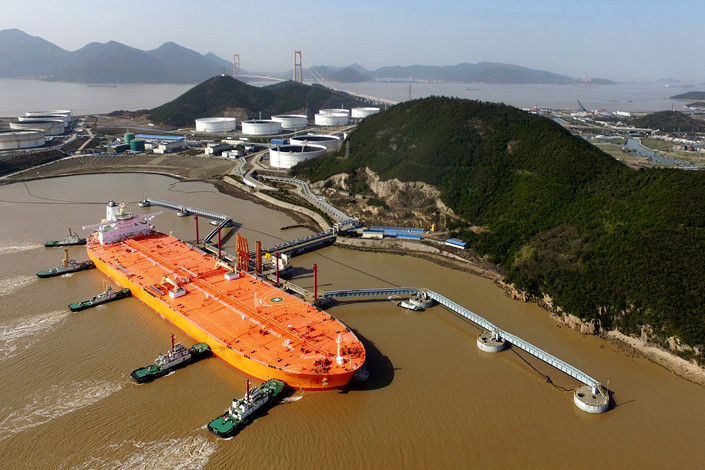(S&P Global Platts) China’s Ministry of Commerce has released 52.56 million mt (385.26 million barrels) of crude import quotas to 35 qualifying independent and non-major state-owned refineries in the second batch for 2022, sources with those plants told S&P Global Commodity Insights June 28.
The volume rose 49.2% from the 35.22 million mt allocated in the same batch for 2021. Last year, the second batch was issued June 21.
However, the higher second batch this year brought up total crude import quotas for 2022 by only 4.9% to 159.96 million mt as of June 28, from 152.44 million mt last year.
The independent refinery sources said they were less anxious about this second batch than the one last year, because most of them had sufficient quotas in hand amid low throughput during the previous months.
Exxon, Shell, CNOOC pursuing offshore carbon capture hub in China
“Most refineries have processed less feedstock year on year as the tight COVID-19 movement controls dampened demand,” said an analyst.
Independent refineries in Shandong slashed their feedstock consumption by 30% year on year to 40.3 million mt (1.96 million b/d) in January-May, data from local energy information provider JLC showed.
S&P Global Commodity Insights data also showed that crude imports by the country’s independent refineries dropped 21.6% on the year to 59 million mt in the first five months.
Only those refineries with larger capacity than they have reported to the government could be short in quotas, sources added.
Launch of Liza Phase 2 pushes China’s oil giant production up by more than 28%
In China, refineries built and operated by state-owned companies — CNOOC, PetroChina, Sinochem and Sinopec — do not need quotas to import crude. All other refineries, including independents and those owned and operated by state-owned companies such as ChemChina and Norinco, require quotas.
Among the 36 quota holders for 2022, the greenfield 320,000 b/d Shenghong Petrochemical is absent from the the second batch list.
The Jiangsu-based independent complex won 7.95 million mt in quota in the first batch, leaving adequate quotas as it has yet to start commercial operations.
The refinery started trial runs in early May but is eyeing commercial operations in around August or September, sources said.
CNOOC’s Bohai is now the largest oil field in China
At the same time, five independent refineries — North Asphalt Fuel, Haiyou Petrochemical, Qingyuan Petrochemical, Qingyishan Petrochemical and Wonfull Petrochemical — failed again to win any crude import quota, after failing to secure any in the first batch.



